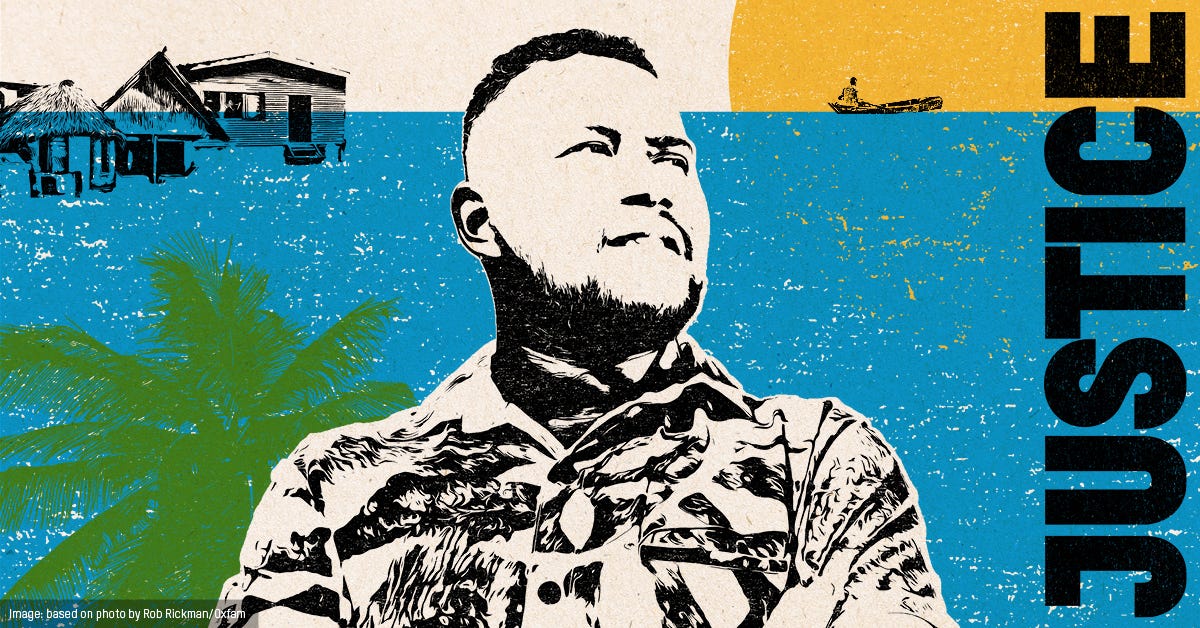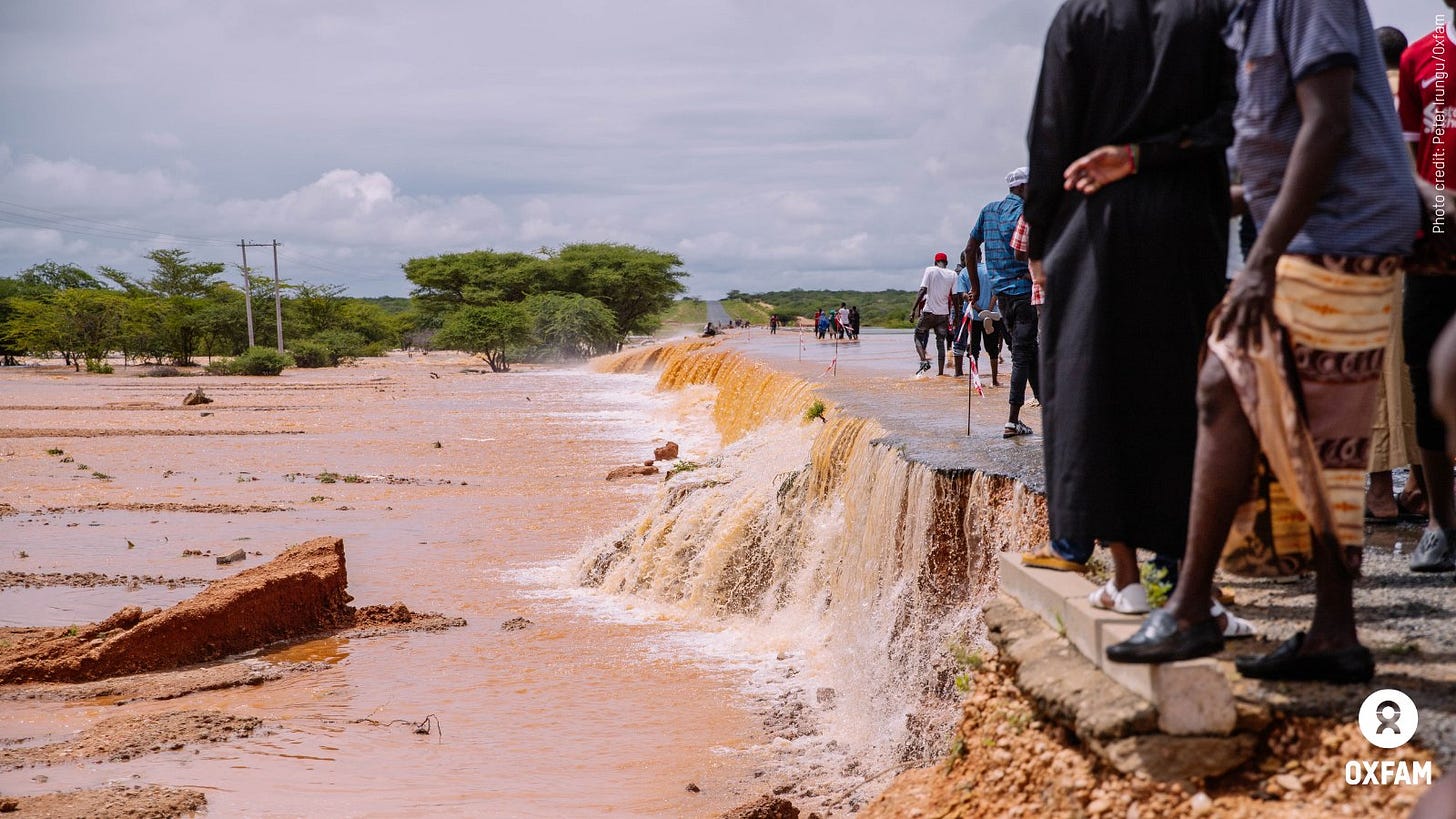The Annual Bonn Climate Conference may not have the glitz of COP summits, but what’s agreed here lays the technical groundwork for COP29 later this year. While negotiators wrangle over climate action, the UN Secretary General António Guterres has warned that the world is headed for catastrophic warming. What needs to happen before world leaders take this seriously?
The most significant issue to be agreed this year is the new climate finance goal that rich countries need to deliver to developing countries post-2025- i.e. what is the total amount they agree to give each year to the Global South. Unsurprisingly, the rich would rather evade, and delay talks instead of paying up for the mess they have created.
Highway to Climate Hell – On the third day of Bonn, Guterres delivered a powerful speech to hundreds of negotiators, aiming to instil a sense of urgency in the negotiation rooms. He stated that the world needs “an exit ramp off the highway to climate hell,” as emissions continue to rise, and the latest data shows a streak of record global temperatures. “We are playing Russian roulette with our planet,” he declared.
The global average temperature for the past 12 months has risen to 1.63°C above the pre-industrial average, as reported by the European Earth Observation Agency Copernicus Climate Change Service.
Disaster After Disaster – The Bonn conference is taking place a few weeks after a series of weather events wreaked havoc around the world. Southeast Asia, particularly India, experienced its hottest heat ever recorded at 52.9°C (127.22°F). People died as a result. Brazil and Germany experienced catastrophic flooding over the past six weeks. Close to 600,000 people were displaced in Brazil and tens of thousands forced from their homes in Germany, with reports of deaths in both countries.
Then there’s the Horn of Africa, where tens of millions of people are suffering from hunger exacerbated by drought, and millions forced on the move in search of food and water.
What else do we need to move world leaders into action? The global majority is condemned to a world with no future.
We know that finance is critical for climate action. Money is needed to help people around the world adapt to the harmful impacts of climate breakdown, to invest in the rapid transition away from carbon-based fuels, and to compensate countries for the Loss and Damage already caused. How much is being given, how much is owed, and where could the money come from?
Only 1 in 4 dollars of Climate Aid is actually real
Rich countries have consistently failed to demonstrate the ambition or political will necessary to settle their climate debts, or even fulfil their existing climate finance commitment to provide developing countries with $100 billion a year from 2020 to 2025. Oxfam’s analysis finds that in 2020/21, the net value of financial support specifically aimed at climate action fell short at $21 billion to $24.5 billion, significantly lower than the officially reported numbers suggest. We also estimate that rich countries have not met their finance commitments for subsequent years either. In our latest report, set to be launched in July, Oxfam will reveal that the finance mobilized for developing countries in 2022 was far less than the OECD’s reported $115 billion.
The 5 trillion-dollar annual bill
At the same time, civil society, in solidarity with people in the Global South and North, is calling on wealthy countries to pay the huge debt owed to the Global South. We’re talking about proposing a minimum of $5 trillion each year. That’s right, trillion with a ‘T’! Remember though, the world mobilised $9 trillion in a matter of months in response to the Covid-19 pandemic.
Righting Historical Wrongs –
Wealthy countries, responsible for a staggering 92% of excess emissions have prospered through centuries of colonialism, imperialism, and extractivism. This exploitation of people and nature, primarily in the Global South, has fueled their wealth, leaving the majority of the world trapped in a cycle of poverty and inequality.
These injustices are not relics of the past but continue to shape our global economy and governance today. Each year, an estimated $10 trillion flows from the Global South to the North, a stark testament to the ongoing extraction of resources, from land and labor to energy.
The climate crisis, while our greatest challenge, also presents an opportunity to rectify historical injustices and create a more equal world. It’s time to acknowledge that the Global North owes a significant climate debt to the Global South. Recognizing and addressing these historical injustices is the first step toward healing communities, restoring nature, and rebuilding global trust.
Calculations the debt owed by rich nations–
The Global North owes the Global South a minimum of $5 trillion per year in climate debt. This debt arises from the Global North’s disproportionate historical responsibility for climate change. The atmosphere is a shared commons to which all people are entitled to fair and equitable use, but the richest countries and the richest people have used more than their fair share. Countries that have over-emitted owe compensation to low-emitting countries for atmospheric appropriation and climate-related damages.
If we translate this extractivism and overshooting into terms of financial compensation for the Global South, it amounts to $192 trillion. The average annual compensation for each year would be $6.2 trillion.
There is Money – rich countries can raise over $9 trillion a year by taxing the wealth and income of the richest including windfall corporate profits. This money can be used to support communities to prepare and protect themselves from climate change, ensuring everyone has a future.
Rich countries should also commit to additional Special Drawing Rights (SDRs) to finance climate initiatives in developing countries. But first, they must expedite the reallocation of at least $100 billion of the existing SDR issuance to low-income countries, with a portion allocated specifically for climate-related purposes. Considering the urgency of the climate crisis and the substantial funding required, they should further commit to at least two new issuances of $650 billion each by 2030 to support developing countries to address the climate crisis.
Rich countries could themselves borrow $11.5 trillion to help pay the climate bill in low-income and middle-income countries. This ‘Big Debt Swap’ would be less than what they borrowed in response to the pandemic, and it would raise their debt-to-GDP ratio only slightly above the pandemic’s peak.
In short, the money is there. They need to pay up.
Listen to EQUALS latest episode on corporate owned-and-run cities in Honduras and the Caribbean Islands and how countries, both in Global North and Global South, are fighting back.
Sign and/or promote the European Citizens Initiative’s petition for a European wealth tax. 1 million signatures are needed to force the incoming European Commission to take an action.
Read far-right fossil fuel allies have launched a stunning and unprecedented campaign pressuring the supreme court to shield fossil fuel companies from litigation that could cost them billions of dollars.
Read Max and Winnie’s op-ed on Pharma profiteering and why the People’s Vaccine Alliance is rebranding as People’s Medicine Alliance.




